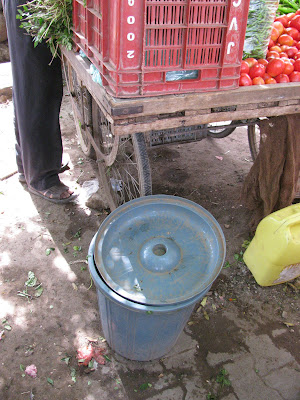
Ima(Mother) keithel(market)or Nupi(Women)keithel is one of the largest market of the world which is only managed by women. Around 3000 stalls are being managed by women. This reflects the independent spirit and enterprise of the Manipuri women. Folklore advocates that Goddess Ima protects these women. The bazaar remains open from 9 in the morning till 7 in the evening.
The tribal women display a range of items from food items such as fresh fruits and vegetables, meat, fish and honey to clothes and woolens. Traditional and tribal costumes in brilliant hues attract the tourists who pay this market a visit. The tribal men of the region handcraft the metal and carved wooden jewelry on display in this market.
The Ima Market, located on either side of the thoroughfare, is a cheery, tourist hotspot and probably the best locale to catch the local culture.





 Vegetable market located in MANSI CHOWK is a daily market. Surrounded by higher and higher middle income group residential societies. It has around 270 hawkers out of which 210 are women hawkers. The market has been developed by AUDA, with advertising rights to Reliance Company. The market is based on the main arterial road, over 30 meters wide. The traffic load on the road is very high and the customers commuting prefer making stoppage and buy vegetables from the market. The market is organized and maintained well by the vendors, for their and customer convenience. Use of stools, shades from sun and electronic weighing machine is done.
Vegetable market located in MANSI CHOWK is a daily market. Surrounded by higher and higher middle income group residential societies. It has around 270 hawkers out of which 210 are women hawkers. The market has been developed by AUDA, with advertising rights to Reliance Company. The market is based on the main arterial road, over 30 meters wide. The traffic load on the road is very high and the customers commuting prefer making stoppage and buy vegetables from the market. The market is organized and maintained well by the vendors, for their and customer convenience. Use of stools, shades from sun and electronic weighing machine is done.










